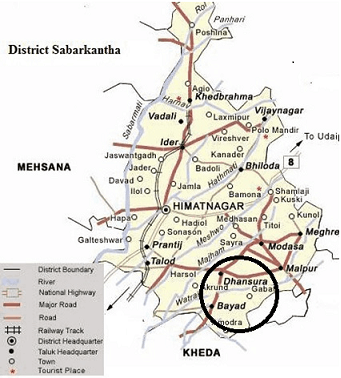/regions/political
Political
Sand mining in coastal areas: Legal procedures to follow
Posted on 30 Nov, 2017 02:29 PMThe river beds, banks, fish and all the other organisms living in and around the river are a major source of livelihood for the traditional communities who live there. The river beds have sand, which is extracted for both domestic and commercial use.

Climate changes Himachal farmers’ game
Posted on 30 Nov, 2017 05:48 AMWith apple production greatly affected due to changing climate in Himachal Pradesh, apple farmers are taking to cultivation of vegetables and ‘low chill’ fruits like pomegranate and kiwi.

Palk Bay: Trawled and damaged
Posted on 28 Nov, 2017 04:05 PMThe Palk Bay is an ecological paradise located between the island nation of Sri Lanka and the South East Peninsula India. The region separates the coastal areas of Tamil Nadu from the northern parts of Sri Lanka.

Conserving Palk Bay
Posted on 28 Nov, 2017 04:04 PMThe Palk Bay is a 15,000 sq km biodiversity conglomeration nestled between the island nation of Sri Lanka and South East Peninsula India with a coastal length of 250 km on the Indian side.

CRZ clears inland waterway terminal at Haldia
Posted on 28 Nov, 2017 01:55 PMGreen nod to Inland waterway terminal at Haldia

Study claims railways biodigesters ineffective
Posted on 28 Nov, 2017 01:50 PMRailways biodigesters are not better than septic tanks: IIT study

Exhibition on India's urban rivers at India River Day 2017
Posted on 28 Nov, 2017 10:42 AMThe theme for India Rivers Day 2017 (IRD 2017), held on 25th November, 2017 at the INTACH Delhi premises, was ‘Rivers in the Urban Context’. Various formats of engagement were deployed for discussion among the participants from across India present for the event.

Large earthquakes imminent in the Himalayas
Posted on 28 Nov, 2017 06:28 AMA new study has reconfirmed the possibility that large earthquakes could be imminent in the Himalayas. While high levels of strain are getting constantly accumulated along the Main Himalayan Thrust region, only a fraction of it is getting released through small earthquakes of magnitudes less than five on the Richter scale.

Toilet use in Uttarakhand: A mountainous issue
Posted on 23 Nov, 2017 02:36 PM“Sometimes I go for open defecation, sometimes I use the toilet. It’s not like I always have to use the toilet. When I go for work here and there, I defecate in the jungle,” says Renu from one of the remote villages in Tehri Garwal district of Uttarakhand when asked why she does not use latrines every day.

Innovative government-NGO partnerships for development
Posted on 22 Nov, 2017 08:49 AMSari-clad women handling tools with alacrity while fixing water hand pumps is a common sight in the Sabarkantha district in north Gujarat.

